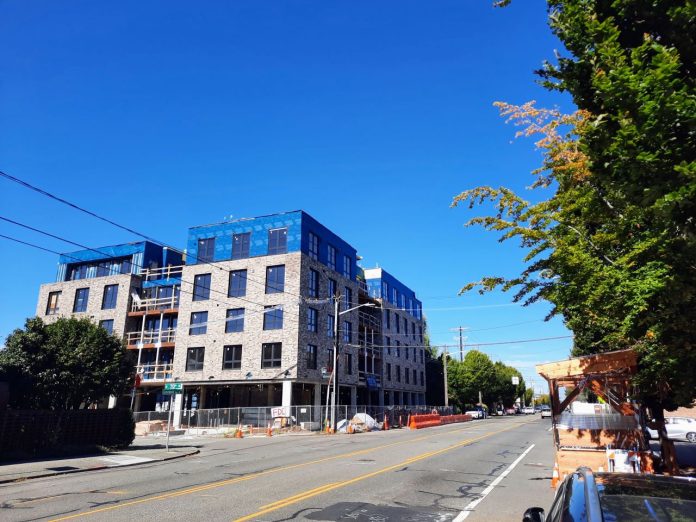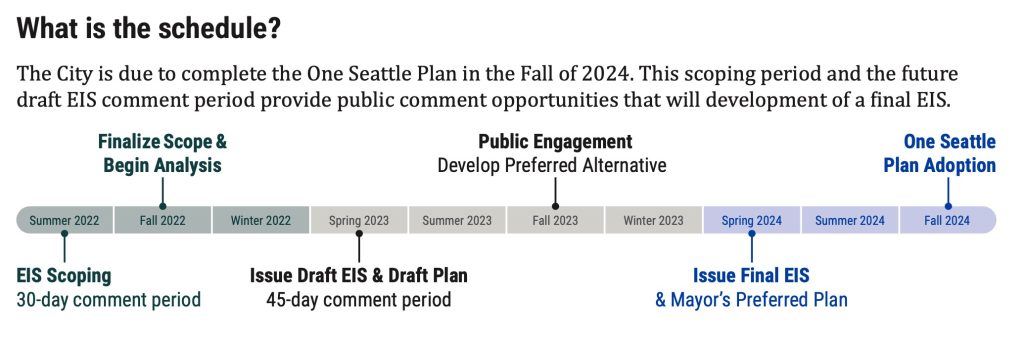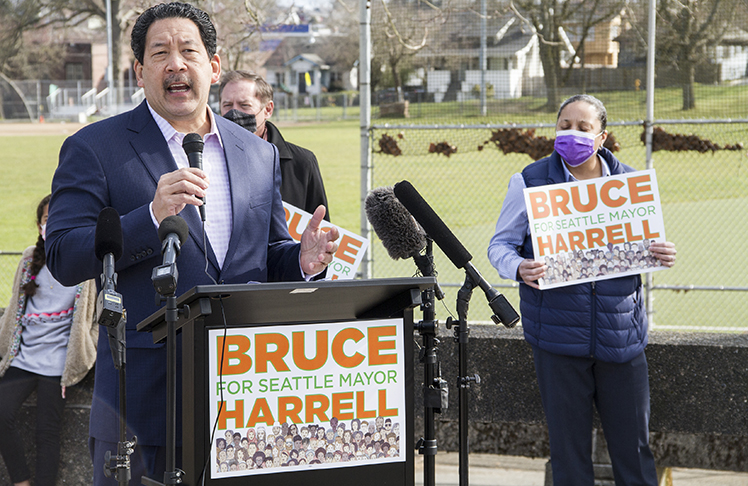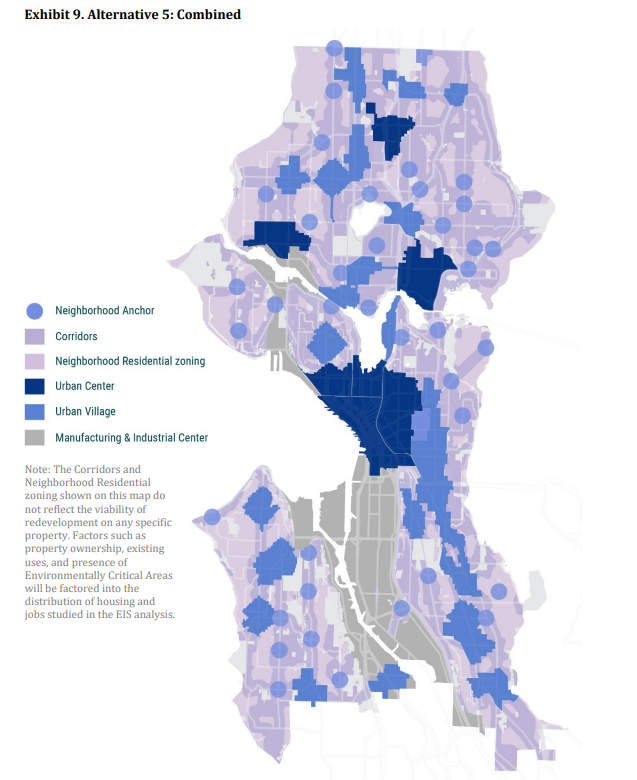
Urge the Harrell administration to move forward with a plan for housing abundance and affordability.
Despite an earlier pledge of an April release for the draft “One Seattle” Comprehensive Plan, the Harrell administration has repeatedly delayed the plan. The comp plan update serves as a once per decade overhaul to Seattle’s overarching strategy for growth and infrastructure needs, ultimately defining the city’s land use and zoning map and laying out a 20-year growth strategy.
Michael Hubner, Long-Range Planning Manger for the Seattle Office of Planning and Community Development (OPCD) said prospects of a 2023 release are slipping away, with an early 2024 release for the draft more likely. That late release will require a very condensed schedule for public feedback, city council deliberation, amendments, and finalizing the plan.
“Unfortunately, this work is taking longer than expected to complete and finalize for public release. We anticipate providing these to the public for review and comment in late 2023 or, more likely, early 2024,” Hubner said in an email. “Once confirmed, we will post a revised schedule on our project website. Following release of these draft documents, OPCD will lead a new phase of public outreach. We look forward to continuing to engage the public on the major update as we work toward adoption by Council by the end of 2024.”

The Urbanist, along with its partners at the Complete Communities Coalition, has urged the city to release the plan without further delay for public engagement and to lower the risk the City will fail to pass the plan in 2024 as required by the state via the Growth Management Act (GMA). Getting the plan on track means getting housing solutions sorted out sooner.
Missing the state’s deadline, while a planning faux pas, would likely come with only minor penalties, such as losing out on a few grant opportunities until the City is in compliance with the GMA. However, state leaders could also seek to make an example out of Seattle lest other jurisdictions get any funny ideas and follow its lead.
Regardless of that risk, delaying the plan has robbed Seattle voters of an opportunity to have a more robust discussion about housing solutions this election cycle. OPCD has offered few specific reasons why the plan was delayed, but Mayor Bruce Harrell has expressed hesitancy to pursue some of the options under consideration that would eliminate restrictive single-family zoning.

Harrell pinned his misgivings on the state missing middle bill to a need for robust public input, which is ironically exactly the opportunity he’s robbing Seattleites of by releasing the draft plan at the last minute.
“To say I’m against the bill, that’s an inaccuracy,” Harrell said in February. “What I’ve expressed, and what our team has expressed in Olympia, is just some concerns to make sure that in Seattle we have the level of community input that we want… So the principles of increasing density, of using our zoning as a tool to achieve the right level of density and affordability, we’re all in on those approaches. But we also know that we have constituents out there that also sometimes want to have, I don’t want to say a more granular approach, but they certainly want their due, the due process involved in communities. So I’m not opposed to it at all. There are just some concerns we’ve asked our teams to ask the legislatures about to make sure the community have the level of input that they want.”

The vast majority of the public feedback that the City of Seattle has received so far is in support of the options that increase housing the most, namely Alternative 5 or adding an Alternative 6 to the study that would go beyond anything the Harrell administration has put on the table thus far. Many Seattle residents have spoken up to say they’re feeling the sting of high housing prices and they want solutions sooner rather than later; ending apartment bans altogether isn’t something the city should be scared of studying.
“Alternative 6 was the most popular option based on an analysis of the scoping comments that the Office of Planning and Community Development (OPCD) received with 40% backing it,” I wrote in an op-ed alongside housing advocates Naishin Fu and Alice Lockhart this fall. “Moreover, two-thirds of public comments advocated for either Alternative 5 or 6, showing bigger zoning proposals are highly popular. Public opinion polling showed similar results, and the idea has support on City Council, too. Councilmembers Teresa Mosqueda and Tammy Morales have urged OPCD to add Alternative 6 to the study.”
Three members of the Complete Communities Coalition steering committee — Tiffani McCoy, who is the advocacy director at Real Change, and Tech 4 Housing organizer Calvin Jones is an organizer and myself opined in The Stranger that the City should release the plan immediately to further the housing debate this election season and ensure a good plan that is completed in time. The Harrell administration did not heed our call, preferring instead to bury the release this winter as the state legislative session resumes, which will serve as a distraction for many local advocacy groups who focus lobbying efforts at the state level during session.
The comprehensive plan is high stakes, as we wrote in our Stranger op-ed: “The answer to solving Seattle’s housing affordability crisis lies in that plan, as local historian Shaun Scott recently showed when he traced Seattle’s housing deficit to previous comprehensive plans that hemmed in the city’s apartment and townhome production to narrow areas.
OPCD’s “failure to release the draft plan ahead of the November elections would amount to a loss for local democracy,” we argued. “The seven council members elected this fall will have the final say over the plan, including decisions on whether to continue reserving the majority of the city’s land for single-family homes – the most expensive type of housing – amidst a housing crisis.”
Housing advocates should reach out to the Harrell administration to let them know that they want to see the One Seattle Comprehensive Plan released immediately — and for the City to go big via Alternative 5 or 6.
- Mayor Harrell: bruce.harrell@seattle.gov or (206) 684-4000.
- Operations Director Marco Lowe: marco.lowe@seattle.gov.
- OPCD outreach team: OneSeattleCompPlan@seattle.gov.
- OPCD Director: rico.quirindongo@seattle.gov.
- Performance Liaison Liz VanBemmel: liz.vanbemmel@seattle.gov.
- All of them at once: bruce.harrell@seattle.gov, marco.lowe@seattle.gov, OneSeattleCompPlan@seattle.gov, rico.quirindongo@seattle.gov, liz.vanbemmel@seattle.gov.
It’s also a great reminder to vote. Harrell’s delay tactics suggest that he did not want housing and his “One Seattle” plan to be the defining issue this cycle. By voting for The Urbanist’s slate, Seattleites can vote for candidates who do want to forge ahead with housing solutions that meet the scale of the problem.
Doug Trumm is publisher of The Urbanist. An Urbanist writer since 2015, he dreams of pedestrian streets, bus lanes, and a mass-timber building spree to end our housing crisis. He graduated from the Evans School of Public Policy and Governance at the University of Washington in 2019. He lives in Seattle's Fremont neighborhood and loves to explore the city by foot and by bike.

